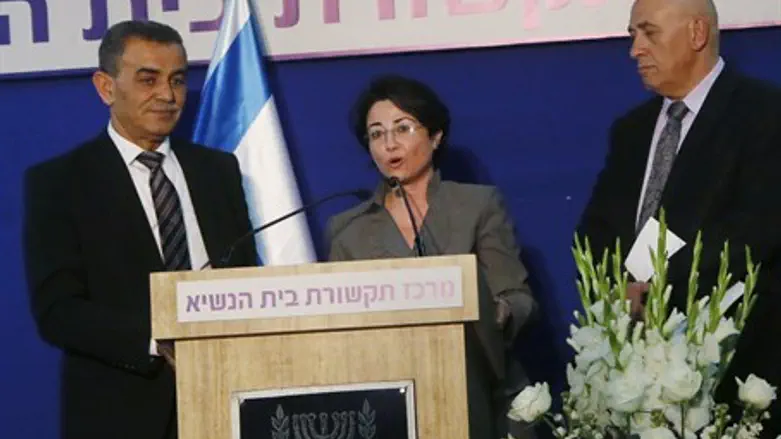
A panel of nine Supreme Court judges discussed Sunday the petition against raising the Knesset's electoral threshold.
In December of last year, Prime Minister Binyamin Netanyahu and Foreign Minister Avidgor Liberman reached an agreement to propose raising the electoral threshold from 2% to 3.25%.
In March, the Knesset approved the amendment to raise the electoral threshold, which would inevitably, in future elections, force out smaller parties who do not gain a high enough percentage of the vote.
Several MKs complained of the new amendment, arguing it was geared to removing Arab parties entirely from the Knesset.
Based on Israel's current population, that new electoral threshold requires even the smallest parties in the Knesset to have four seats - and all the Arab parties in the plenum now have only three seats.
Communist and joint Arab-Jewish party Hadash MK Dov Khenin called the decision tantamount to conducting a “political transfer” against Arab parties in Israel.
“In the past, Liberman has proffered ideas to 'transfer' the Israeli Arab population out of the country, and now he is behind this 'political transfer' that seeks to deny Arabs fair representation in the Israeli political process,” said Khenin.
“The move will place very high walls around the political system and prevent new political movements from forming.”
Similar criticism was issued at the panel discussion Sunday, when Justice Salim Joubran argued that it was "a needless law - a country's majority is measured by how it treats minorities."
Joubran, who serves as the Chairman of the Central Elections Committee for the 20th Knesset, continued elaborating his opposition to raising the threshold, wondering, "How will the world view Israel if there are no Arab parties in the Knesset?"
Israel's three Arab parties currently serving in the Knesset - Hadash, Balad, and the United Arab List - have been trying for weeks to formulate a unified list that would run together in the upcoming elections - and would enable them to pass the threshold.
At this stage it remains unclear whether the parties will be united.
A recent survey carried out by the Panels Politics Institute for the Maariv newspaper revealed that if the Arab parties were to run together, they would garner 13 seats in the next Knesset, and spell the end of Shas.
In early December, a confident MK Hanin Zoabi (Balad) predicted that a united Arab list would net 16 mandates in upcoming elections.
Despite past grievances, Zoabi was optimistic that the parties could overcome their differences. Commenting on the elections, she said that regardless of what happens, she is “happy that the government of the radical settlers has fallen apart.”